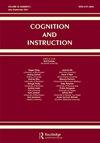Counter-Arguing During Curriculum-Supported Peer Interaction Facilitates Middle-School Students’ Science Content Knowledge
IF 2.6
1区 心理学
Q2 PSYCHOLOGY, EDUCATIONAL
引用次数: 30
Abstract
Abstract Peer argumentation, especially the discussion of contrary points of view, has experimentally been found to be effective in promoting science content knowledge, but how this occurs is still unknown. The available explanations are insufficient because they do not account for the evidence showing that gains in content knowledge are unrelated to group outcomes and are still evident weeks after collaboration occurs. The aim of this article is to contribute to the understanding of the relationship between peer-group argumentation and science content knowledge learning. A total of 187 students (aged 10 to 11 years) from 8 classrooms participated in the study, with the classrooms spread across 8 public schools, all located in Santiago, Chile. We conducted a quasi-experimental study randomized at school-class level. Four teachers delivered science lessons following a teaching program especially developed to foster dialogic and argumentative classroom talk (the intervention group), and four teachers delivered lessons in their usual way (the control group). Students were assessed individually using both immediate and delayed post-test measures of science content knowledge. The results showed no differences in pre- to post-immediate content knowledge between conditions. However, the intervention-group students increased their content knowledge significantly more than the control-group students between post-immediate and post-delayed tests. Hierarchical multiple regression analyses showed that, after controlling for school-level variables, time working in groups, and scores in the pretest, the formulation of counter arguments, although occurring in both groups, significantly predicted delayed gains in the intervention group only. Moreover, the frequency of counterarguments heard by students during the group work did not make a difference. Focal analysis of one small-group work suggests that teachers’ instructional practice may have contributed to the consolidation of students’ knowledge at an individual level in a post-collaborative phase.课程支持下的同伴互动中的反争论促进中学生的科学内容知识
摘要同行论证,特别是对相反观点的讨论,在实验中被发现可以有效地促进科学内容知识,但这是如何发生的仍然未知。现有的解释是不够的,因为它们没有考虑到证据表明内容知识的获得与团队结果无关,并且在合作发生几周后仍然很明显。本文的目的是有助于理解同伴群体论证与科学内容知识学习之间的关系。共有187名学生(年龄在10至11岁之间 年)参与了这项研究,教室分布在智利圣地亚哥的8所公立学校。我们进行了一项准实验研究,随机分为学校和班级。四名教师按照专门为促进对话和议论文课堂谈话而制定的教学计划授课(干预组),四名教师以常规方式授课(对照组)。学生们分别使用科学内容知识的即时和延迟测试后测量进行评估。结果显示,不同条件下,即时内容前后的知识没有差异。然而,在即时测试后和延迟测试后,干预组的学生比对照组的学生增加了更多的内容知识。分层多元回归分析表明,在控制了学校水平的变量、小组工作时间和预测分数后,尽管两组都出现了反驳,但只有干预组的反驳才能显著预测延迟收益。此外,学生在小组作业中听到的反驳的频率也没有什么不同。对一项小组工作的焦点分析表明,教师的教学实践可能有助于在合作后阶段巩固学生在个人层面的知识。
本文章由计算机程序翻译,如有差异,请以英文原文为准。
求助全文
约1分钟内获得全文
求助全文
来源期刊

Cognition and Instruction
Multiple-
CiteScore
7.90
自引率
12.10%
发文量
22
期刊介绍:
Among education journals, Cognition and Instruction"s distinctive niche is rigorous study of foundational issues concerning the mental, socio-cultural, and mediational processes and conditions of learning and intellectual competence. For these purposes, both “cognition” and “instruction” must be interpreted broadly. The journal preferentially attends to the “how” of learning and intellectual practices. A balance of well-reasoned theory and careful and reflective empirical technique is typical.
 求助内容:
求助内容: 应助结果提醒方式:
应助结果提醒方式:


